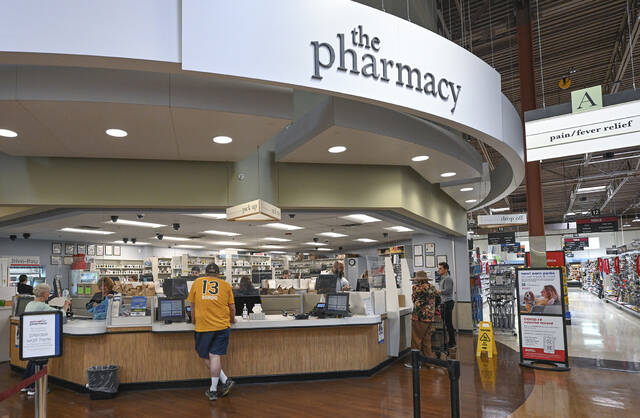Are grocery stores the key to fighting back against the high cost of prescription drugs?
In recent years, drugstores have been caught between a rock and a hard place. The rock is Medicare and Medicaid co-pays. The hard place? Pharmacy benefit managers that act as a middleman between pharmaceutical companies and the retailers.
Over the past two years, multiple pharmacies have gone belly-up in Southwestern Pennsylvania. Some were independent stores or smaller neighborhood chains like Mainline Pharmacy, which closed nine locations in March 2024.
But then there are the bigger ones, like Rite Aid. That closing amid bankruptcy will be felt extensively as the chain was ubiquitous in the Keystone State and beyond.
When Mainline closed, Rite Aid offered jobs to many of the displaced employees, as well as making an agreement with Mainline to take the prescription information for the customers left at a loss.
Fifteen months later, Rite Aid is passing on its prescriptions to Giant Eagle. In May, the grocery store chain, which houses full-service pharmacies in many of its locations, announced it was taking over the prescriptions for 78 Rite Aid stores in Pennsylvania and Ohio. On June 25, that number was upped to 83.
Is this just the next move in an ongoing game of hopscotch as customers try to find a pharmacy?
Probably not.
Consider the layout of your basic chain drugstore. The medications are in the back, with space up front filled with small sections of other things: some food, some candy, some cards, some over-the-counter medications. They are often like small grocery stores — but frequently with higher prices because of convenience.
With an independent pharmacy, there can be much less of the other items, forcing them to rely more on the prescriptions.
But pharmacies in a grocery store like Giant Eagle or a large discount department store like Walmart have a wealth of other merchandise to act as shock absorbers for any impact from Medicare copays or pharmacy benefit managers.
That can provide stability for the drug counter and for the customer. But will it help with prices?
Hard to say — especially as the One Big Beautiful Bill Act has just passed. There is no telling right now what impact that could have on pharmacy bottom lines.
But the fact is no one is talking about the copay or pharmacy benefit manager issues going away. The grocery stores are less a cure than they are a treatment for a chronic condition.








